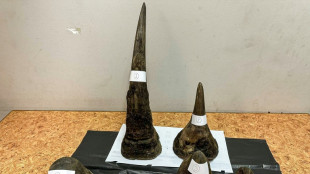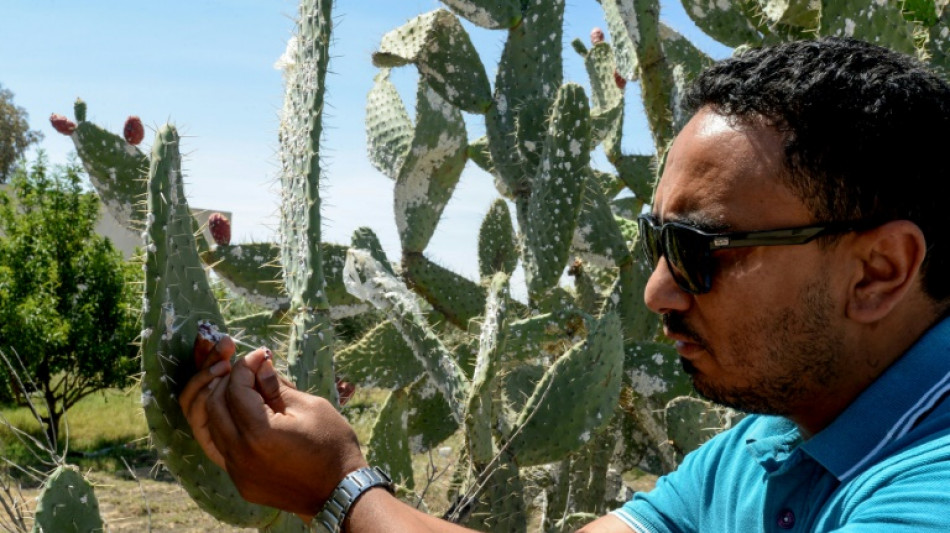
-
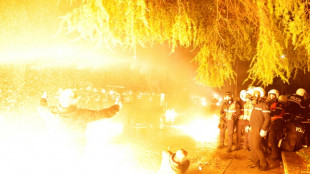 Several wounded in clashes at Albania opposition rally
Several wounded in clashes at Albania opposition rally
-
Chelsea's draw with Leeds 'bitter pill' for Rosenior

-
 'On autopilot': US skate star Malinin nears more Olympic gold
'On autopilot': US skate star Malinin nears more Olympic gold
-
Carrick frustrated by Man Utd's lack of sharpness in West Ham draw

-
 Frank confident of keeping Spurs job despite Newcastle defeat
Frank confident of keeping Spurs job despite Newcastle defeat
-
James's All-NBA streak ends as Lakers rule superstar out of Spurs clash

-
 Anti-Khamenei slogans in Tehran on eve of revolution anniversary: social media footage
Anti-Khamenei slogans in Tehran on eve of revolution anniversary: social media footage
-
Colombian senator kidnapped, president targeted in election run-up
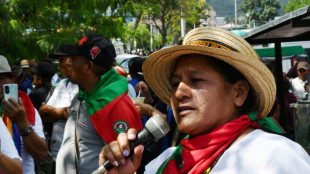
-
 Britney Spears sells rights to her music catalog: US media
Britney Spears sells rights to her music catalog: US media
-
West Ham end Man Utd's winning run, Spurs sink to 16th

-
 US skate star Malinin leads after short programme in Olympics
US skate star Malinin leads after short programme in Olympics
-
Man Utd's Sesko strikes late to rescue West Ham draw

-
 Shiffrin flops at Winter Olympics as helmet row grows
Shiffrin flops at Winter Olympics as helmet row grows
-
Celtics' Tatum practices with G League team but injury return uncertain

-
 Gisele Pelicot publishes memoirs after rape trial ordeal
Gisele Pelicot publishes memoirs after rape trial ordeal
-
Newcastle beat sorry Spurs to leave Frank on the brink

-
 'Outrage' as LGBTQ Pride flag removed from Stonewall monument
'Outrage' as LGBTQ Pride flag removed from Stonewall monument
-
Chappell Roan leaves agency headed by embattled 2028 Olympic chief

-
 Venezuelan authorities move Machado ally to house arrest
Venezuelan authorities move Machado ally to house arrest
-
YouTube rejects addiction claims in landmark social media trial

-
 Google turns to century-long debt to build AI
Google turns to century-long debt to build AI
-
'I felt guided by them': US skater Naumov remembers parents at Olympics

-
 Till death do us bark: Brazilian state lets pets be buried with owners
Till death do us bark: Brazilian state lets pets be buried with owners
-
'Confident' Pakistan ready for India blockbuster after USA win

-
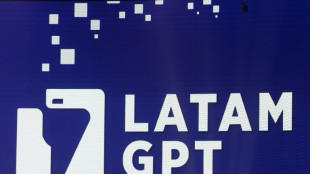 Latam-GPT: a Latin American AI to combat US-centric bias
Latam-GPT: a Latin American AI to combat US-centric bias
-
Gauff dumped out of Qatar Open, Swiatek, Rybakina through

-
 Paris officers accused of beating black producer to stand trial in November
Paris officers accused of beating black producer to stand trial in November
-
Istanbul bars rock bands accused of 'satanism'

-
 Olympic bronze medal biathlete confesses affair on live TV
Olympic bronze medal biathlete confesses affair on live TV
-
US commerce chief admits Epstein Island lunch but denies closer ties

-
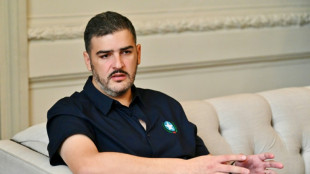 Mayor of Ecuador's biggest city arrested for money laundering
Mayor of Ecuador's biggest city arrested for money laundering
-
Farhan, spinners lead Pakistan to easy USA win in T20 World Cup

-
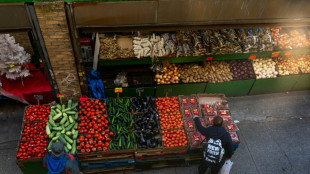 Stocks mixed as muted US retail sales spur caution
Stocks mixed as muted US retail sales spur caution
-
Macron wants more EU joint borrowing: Could it happen?

-
 Shiffrin flops at Winter Olympics as helmet row simmers
Shiffrin flops at Winter Olympics as helmet row simmers
-
No excuses for Shiffrin after Olympic team combined flop

-
 Pool on wheels brings swim lessons to rural France
Pool on wheels brings swim lessons to rural France
-
Europe's Ariane 6 to launch Amazon constellation satellites into orbit

-
 Could the digital euro get a green light in 2026?
Could the digital euro get a green light in 2026?
-
Spain's Telefonica sells Chile unit in Latin America pullout

-
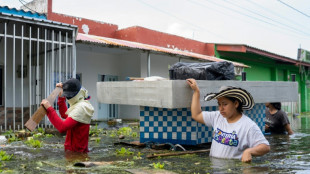 'We've lost everything': Colombia floods kill 22
'We've lost everything': Colombia floods kill 22
-
Farhan propels Pakistan to 190-9 against USA in T20 World Cup

-
 US to scrap cornerstone of climate regulation this week
US to scrap cornerstone of climate regulation this week
-
Nepal call for India, England, Australia to play in Kathmandu

-
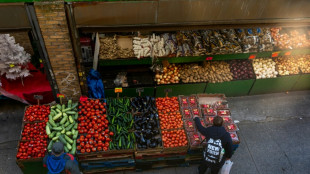 Stocks rise but lacklustre US retail sales spur caution
Stocks rise but lacklustre US retail sales spur caution
-
Olympic chiefs let Ukrainian athlete wear black armband at Olympics after helmet ban

-
 French ice dancers poised for Winter Olympics gold amid turmoil
French ice dancers poised for Winter Olympics gold amid turmoil
-
Norway's Ruud wins error-strewn Olympic freeski slopestyle
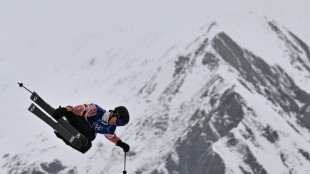
-
 More Olympic pain for Shiffrin as Austria win team combined
More Olympic pain for Shiffrin as Austria win team combined
-
Itoje returns to captain England for Scotland Six Nations clash


Insect infestation ravages North African prickly pear
Amor Nouira, a farmer in Tunisia's Chebika village, has lost hope of saving his prickly pear cacti, ravaged by the cochineal insect spreading across North Africa.
The 50-year-old has seen his half-hectare of cactus crops wither as the invasive insect wreaked havoc on about a third of the country's cacti after an outbreak in 2021.
"At first, I wanted to experiment with prickly pear production and gradually develop investments while looking for customers outside the country, especially for its natural oil," said Nouira.
"But... as the cacti became damaged, I abandoned the idea of investing and stopped thinking about it altogether."
Prickly pear is consumed as food and used to make oils, cosmetics and body-care products.
In Chebika, as in other rural areas in central Tunisia, many farmers' fields of prickly pear -- also known as Opuntia -- have been spoiled by the cochineal, which swept through North Africa 10 years ago, beginning in Morocco.
The insect, like the prickly pear, is native to the Americas and feeds on the plant's nutrients and fluids, often killing it.
The infestations have resulted in significant economic losses for thousands of farmers reliant on prickly pear, as authorities struggle to combat the epidemic in a country where its fruit is widely consumed as a summertime snack.
- Livelihood -
Tunisian authorities estimate that about 150,000 families make a living from cultivating Opuntia.
The North African country is the world's second-largest producer of its fruit, after Mexico, with about 600,000 hectares of crops and a yield of about 550,000 tonnes per year, according to the Food and Agriculture Organization (FAO).
Only production allocated for export -- about a third of overall crops -- has remained in good condition, said Rabeh Hajlaoui, head of the department of plant health at Tunisia's agriculture ministry.
"We're making every effort to save these plants, which are an important source of income to some locals," he explained, as one litre of extracted Opuntia oil can be sold for as much as $4,200.
Farmers also plant prickly pear cacti for their resistance to drought and desertification, and sometimes use them to demarcate and fence property in Tunisia and neighbouring Libya.
In Morocco, where the first cases of cochineal were found in 2014, Opuntia is cultivated over a total of 160,000 hectares.
In 2016, the Moroccan government issued an "emergency plan" to combat cochineal infestation by experimenting with various chemicals, burying infected cacti and conducting research on developing variants resilient to the insect.
Despite the plan, by August 2022, about 75 percent of Opuntia crops in Morocco had been infested, according to Mohamed Sbaghi, a professor at Rabat's National Institute of Agricultural Research (INRA) and the emergency plan coordinator.
In neighbouring Algeria, authorities recorded an outbreak in 2021 in Tlemcen, a city near the border with Morocco.
Prickly pear cultivation in the country covers around 60,000 hectares, and the fruit is so cherished that a festival dedicated to it is held every year in the eastern Kabylia region.
- 'Public safety' -
Neither the plant nor cochineal is native to North Africa, but the region's dry climate helped them spread, said Tunisian entomologist Brahim Chermiti.
"Climate change, with increasing drought and high temperatures, facilitates their reproduction," he told AFP.
The region has experienced severe drought in recent years, with declining rainfall and intense heat.
Chermiti believes it's a matter of "public safety" to combat cochineal infestation, requiring "strict border crossing monitoring and public awareness".
The researcher fears total contagion, as "sooner or later, it will spread, with the help of many factors such as the wind and livestock".
Hajlaoui, from Tunisia's agriculture ministry, said the issue could even cause social unrest if it spreads to farms in marginalised areas, such as Tunisia's Kasserine governorate, where Opuntia is nearly the only source of livelihood for many.
He said the "slowness of administrative procedure" during the first major outbreaks in Tunisia impeded efforts to stem the spread of cochineal.
At first, Morocco and Tunisia burned and uprooted infected crops, but authorities now aim for "natural resistance" to the insect, said Hajlaoui.
Last summer, Morocco's INRA said it identified eight cochineal-resistant Opuntia varieties that could potentially be cultivated.
The other solution, added the expert, is spreading the Hyperaspis trifurcata ladybird -- also native to the Americas -- among the cacti, which preys on cochineal.
In Morocco, farmers began raising the ladybird "so that it is always ready" in case of outbreaks, said Aissa Derhem, head of the environmental association Dar Si Hmad.
Last month, Tunisia received 100 ladybirds along with an emergency budget of $500,000 to battle cochineal, allocated by the FAO.
P.Santos--AMWN
